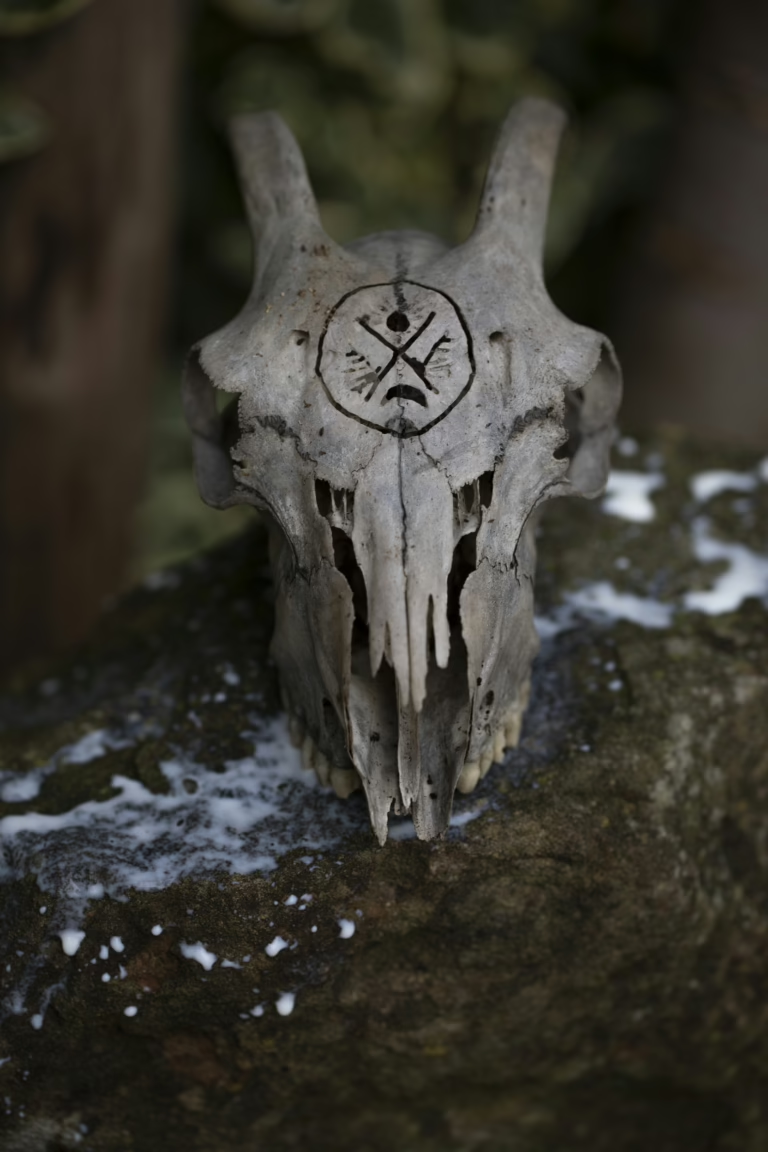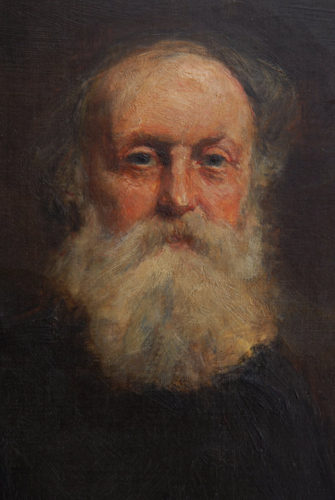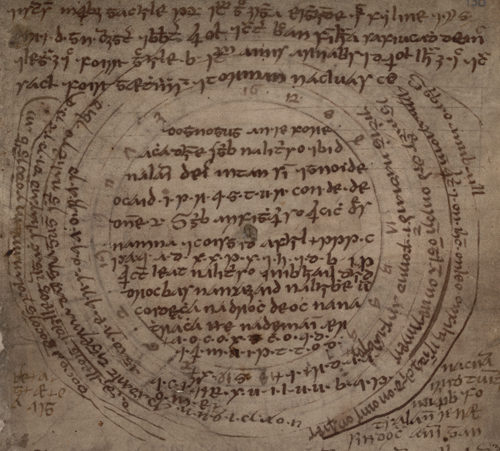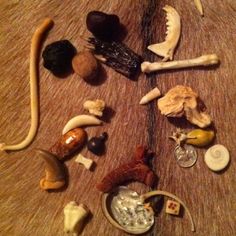
Newsletter Subscribe
Enter your email address below and subscribe to our newsletter

Enter your email address below and subscribe to our newsletter


Exploring Scottish Folk Practices and Traditions

I get asked “what is a Folk Practitioner or what is folk magic?” on many occasions. I also get asked “what is the difference between what you do and what a witch does?”, “Is it witchcraft?”, “Are you religious?”, “Do you worship a lord and lady or speak to the de’il?”, “Do you follow the immanent and emanant mysteries of your gods?” and finally “Do you worship nature? Do you bang your drums and dance around?”
This is no fault of anyone. Folk practices have been adopted in a lot of modern magico-religious approaches. This has caused a lot of confusion when discussing what folk magic practitioners do based on Scottish cultural traditions do and how it differs from Wicca, Traditional Witchcraft, shamanism, Druidry etc. In my mind, the difference is really rather big. I’m writing this as a “kind of” FAQ to help explore some of the differences and why they are important and to maybe help those who don’t know. It’s by no means exhaustive and I invite comment on these ideas from others.
First off, folk magic are practices of the people – the folk. Folk practices as you may imagine are very old. Very old and adaptable. Very much like people and their culture. Scottish folk practices have their roots far back in an older way of life. Scottish community and folk practices developed over time from the melting pot of Gaelic, Norse, Pictish, Angles, Norman and Saxon influences. All of these different influences had, and still do have, an impact on what folks did on a day to day basis. I have written about how Scottish tradition has been appropriated by pagan, druidic and witchcraft in another couple of posts. A story about it here and a more in depth examination of it here which provides some deeper context to what is to follow.
Whats also important to note is folk magic belong to all people. Each person had their way of interacting with the unseen world. Be it bakers, dairy workers, cloth makers, blacksmiths, fishermen, candle makers, brewers, cooks, domestic servants, any job you can imagine had a way of interacting with the otherworld. This is important to remember as folk magic is for everyone There were, and are, different ways for different people and everyone had a relationship with the other folk- the good folk and the animistic world view- for different reasons. This varied by person to person, village to village and district to district – so there was never only one version of it. This is different to some of the more authodoxisms in the occult and witchcraft communties. Yes, we did have specialist like the guid wife or the Fairy Dr etc, (some of these were disabled people) but they weren’t as many. We also had folk magic practitioners like charmers who maybe were good at a certain thing but not the whole thing. So if anyone is telling you folk magic isn’t for you politely tell them to fuck off.

We are very lucky to find that a lot of this information has been preserved in literal format by folks such as Alexander Carmichael, Marion McNeil, Bates and Reginald Scott and others. Though this isn’t without its own form of appropriation and harm. There is a huge collection of information that discusses seasonal practices, songs, prayers, festivals, celebrations and day to day things people believed in and carried out. One beautiful example of folk practice are the songs (known as a rann’s) sung to plants before picking them, on awakening, reaping, seed sowing, sleeping etc.
So, how is this not Wicca, Traditional Witchcraft or Druidry et al? First off these are newer traditions druidry created from the antiquarian revival in the 1800’s Wicca from the 1900’s, traditional witchcraft from about the same time. All these worldviews have a tendency to be accompanied by a set of “beliefs” defined by their creators. Some witches are religious such as in Wicca with the Lord and lady. Others, such as Trad witches may involve the Gnostic mystery’s of lucifer or honour a spirit such as the Bucca and look at the seasonal wheel as different representations of this figure and involve themselves in the immanent and emanant mysteries. Druids believe in a variety of ideas but most experience a pantheon of gods and goddesses. All of these different traditions do borrow from Scottish folk magic and merge it into their systems in some way or another but again they are appropriating and borrowing from a devastated culture due to English imperialism and recreation it to suit there own understanding.
In our animistic culture – before the reformation witches were people who stole and used a community for their own ends. Scottish Folk practitioners disregarded witches and viewed them as evil. Think about it, in animistic cultures, like Scotland pre colonialism, folk worked together in community to provide for one another and had a collective way of life with no idea of private ownership. Any individual using magic to extract from that community, to feed their own egoistic, needs and not that of a collective good would have been a real issue to them. Our Scottish ancestors for this very reason would be greatly insulted by this appropriation and conflation of their way of life to that of a Witch. You can see this being born out in the witchcraft trials of the 16th century. The use of the word witch is a term given to our folk practices by imperial and religious abrahamic elites – seeking to demonise the people who practiced old beliefs and ways seen as popish. The ruling class demonising the working class in essence. Taking our way of life and turning it into something diabolic. The spirits they didn’t want to assimilate, for example in holy wells and Lochs they turned into the devil himself or some other evil entity.
The defining difference is folk practices aren’t religiously based. Folk practitioners don’t necessarily follow any god/goddess or they can, in fact, follow any religion such as Christianity, Catholicism, Islam etc. You don’t need a particular set of “beliefs” or “faith” to be a folk practitioner. Folk magic approaches are syncretised with and can be developed from older and newer religious ideas we have. They were preserved in some ways though Christianised in surviving literature. In Scotland, the saints replaced local spirits of wells and hills and Christian/Catholic teachings were used to call on saintly figures whilst people maintained a belief in the fairy folks at the same time. At the same time spirits the church didn’t like became known as folk de’ils or the folk devil. To me, it is an example of how the folk belief in animism ran alongside other religious ideas. Also a lot of our folk tales we draw from are stories of an aristocracy (theres a reason why we call the good folk the gentry) and the Tuatha De Dannan are all “royal” to a certain degree. – these aren’t the stories of servants and farmers. Interestingly in our working class folk stories we have a lot of examples of where the spirit is more accessible and in the wild than these larger aristocratic tales where the spirit is part of the gentry and elite worship. However, in our folk magic spells we still call on these mighty names with barbarous words. However, exploring the class structure in witchcraft and folk magic helps put the folk back into folk lore and folk magic but this is a story for another day.
In my view, (and this should be acknowledged as my own lens of understanding as it now stands) Scottish folk practices link to animism. To Scottish folk practitioners, everything has a spirit. To me, this is consistently demonstrated by the collected information and the tales we have of the Daoine Síth (the good folk) that still prevail. Honouring these spirits and building relationships with them is the concern of folk magic practitioners like myself. I’d argue this equity conciseness or reciprocity or sacred hospitality should be the number one core belief of folk magic practitioners in Scotland linking it to solely Gaelic concepts like dùthchas.
We honour “otherworld folk” from our local area and maybe work with such ideas of the Slaugh or the host of the dead. Once the relationship is developed or suitable “pacts” engineered, these spirits then choose to help in the ever so practical work of folk magic. This relational way of working also extends to the local land and plants that inhabit it. You seek the aid of the plant “spirit” by showing it respect and singing them particular songs etc. It is hoped by asking them to help it makes the herbal medicine or charm stronger. This means the power of this doesn’t sit within you as an all might powerhouse but in the relationships you build and the community you have. There is less hierarchy in animism than in pantheons and ititss funny to me how folk strive to turn everyone and everything into a god or goddess or deity level event.
Scottish folk magic practitioners believe in the “otherworld” a place where their ancestors and “others” like the síth/sidhe and plant spirits inhabit. This otherworld isn’t very far away, it’s like it’s just out of step with our own world. It’s easily accessed at the liminal times such as dawn, dusk, midnight, Bealtainn and Samhuinn, and places such as fog, door steps, thresholds, on hills, near bogs and water and many other ways such as divination and techniques such as second sight etc. There is no veil in Scottish folk magic – the veil doesn’t get thin. This is a victorian idea.

Folk magic spells are created from plant leaves and roots, stones, water and lots of different things. For example, stones being used for healing, cloths tied to sacred wells for healing, wool spun and tied to people to effect a change, young children passed through Holy stones, Holy stones used as ways of seeing the other world, writing phrases, Rowan wood crosses, and red thread etc. The list of these charms is endless. They are as varied as the folk who use them.
Another characteristic of Scottish folk magic and practices is the lack of elaborate rituals, specific tools, times of day and clothing needed to get access to the practice. It’s all pretty much straight forward and common sense stuff requiring no special gear. Over time, you may acquire some objects that start to hold special meaning but these are totally up to yourself; your spirits and your preferred way of working. Folk practices are an everyday occurrence and nothing requiring more work than a pointed finger or to circumambulate something three times can be very effective. Wicca and other magical traditions use ceremonial magic techniques such as circle building, invoking and evoking various deities etc and most operate a grade system or have priests and priestesses or a magister or what have you. Folk practices don’t have this elaboration or the same hierarchy – those who did this as a full time profession were either born or given the gift through trauma. I also find ceremonial magic when viewed through the lens of colonialism and through a folk magic perspective spiritually violent. That however, is more writing for another day.
Scottish folk magic also has its base in ancestry. A lot of Scottish people know their ancestry really well. Some can even trace their ancestry back to the Tuatha De Dannan and the Milesians etc. Ancestors are the only “outside help” called upon by some folk practitioners and this is clearly demonstrated in the ways Scottish folk construct their ranns (meaning runes or charms). In the construction of the rann someone’s actions are always emulated. The phrase “as so and so healed this let me heal this” is very common and this structure is repeated in other ways. This is typical of Scottish Folk magic. Sometimes the “so and so” may be replaced with a figure linked to the thinking of the folk practitioner so here we get figures like Mary, St Michael or Thor other named spirits popping up.
Though there are many types of Scottish folk practitioner. Scottish Folk practices were carried out by everyone daily to some extent. Most folks had access to folk magic (piseógs) it was an everyday technology, I suppose a bit like having a phone these days everyone knew a little bit of something. Folk had to take their own “safety” from the machinations of witches and the Síth into their own hands. Today we might call them superstitions but these are commonly held beliefs we still have to this day. Crossing fingers and knocking on wood to help avert a bad outcome or offer protection are commonplace for good reason. If things got tricky, they would call in a specialists (like a wise woman or men or fairy doctor). Outside of the everyday occurrence of these activities, you have those who might also be healers, midwives, lykewakers or death midwives, spae-wives (fortune tellers), folk herbalists, diviners, fairy doctors, those with the second (or second hand sight) etc along with their everyday roles in the community. It’s important to note not all folk practitioners would do these activities. Not all folk practitioners would be herbalists and diviners and spae-wives but maybe have a particular skill in a particular area; with limited skill in one form of divination as a way to contact the spirits.

Folk practitioners, would mostly divine through augury, lots and/or omens to see what is affecting those who came to see them. For example, the presenting issue was of “hill, water or kirk”. The clients who came to see them might have been “elf-shot” or otherwise affected by the síth or the malificarum of Witchcraft. Witches, to the folks on pre modern Scotland and to folk practitioners, were evil and responsible for a lot of harm. Before the reformation and the witchcraft trials Witches were seen as monstrous things, but through the reformation folk practices like folk Catholicism came aligned with malificarum and, what I think, we get the conflation we have today. If witches or the Síth had caused the malady, or the folk practitioner was unable to effect a cure, they might suggest they go and see the wise woman or man or the area priest and the folk practitioner would pass them on, one of the first referral systems. This is because not all folk practitioners have the ability to manage illnesses that have their roots in the “doings” of the otherworld and in the evil of witchcraft. They might also refer them to the town priest for similar issues if the problem was one of faith.
In brief, a folk practitioner might hold one of these roles in their community and use folk magic ranns and spells to effect change for your community. You don’t necessarily need to see “spirits” or into the otherworld, divine, use herbs, “cross” over into the otherworld, have an attending familiar and the nine yards of things at all. We all have different gifts and abilities. Some though who make this a full-time career will be able to and these would be the gifted minority (and a rare minority at that) who would be termed, fear/bean feasa – wise man or woman.
The only practitioners who have the ability to work with the sidhe and those inflicted by “elf-shot” were the wise people and fairy doctors and this was a profession they would undertake full-time but also along side their “day jobs” I guess. These people are few and far between and their gifts are given to them by their relationship with the good folk. The importance of the reciprocity or you may have heard me call it Equity consciousness cannot be understand. The good folk can also take their gifts away easily, sometimes quite dramatically such as removing an eye etc. Normally this may happen if the wise man or woman charged for using their gifts or for displeasing the good folk in another way. These good folk and the associated tales of figures who helped the wise man or woman, I think, represent the archetypical familiar stereotype we hear so much about in witchcraft circles these days. But as you can see the relationship is very different when looked through the eyes of Scottish folk practice. In Scottish folk practice, the sith is the one in power and control and the work is done in relationship with them. In Ceremonial Magic and some forms of witchcraft, the Witch holds the yoke over the spirit. Also to be a ceremonial magician you also need a strong faith in the Christian gods, and again I think a form of spiritual violence when used to command and threaten spirits in the way it’s laid out.
Who you are as a folk practitioner is really decided by the community a folk practitioner lives in. In witchcraft its through initiation of self or in a coven. I have written about this before and you can find the link here. But to summarise morality wasn’t a question in folk magic. Folk practitioners would “work with both hands” to use a modern term i.e. they did what was needed to be done in support of the community they helped and supported. Also, let’s bear in mind right and wrong are a of privilege of the wealthy and privileged in society. Sometimes people just had to do what they had to do to survive day to day. Following on from the older traditions people’s reputations were earned. It’s not my place to name myself “keeper of the stones” or “wise man” or any other bombastic title. My title, and what reputation I have, is decided by my community.
I hope that this short discussion has been helpful to define some of the differences between these ideas. It’s reassuring for me to see these approaches are being incorporated into contemporary life and practice. People are starting to once again re-explore their own roots and history. They are starting to become interested in exploring stereotypes of older times and reigniting relationships with the communities and the lands around them through foraging and herbalism. So who knows? It might mean that your local mechanic is a “car whisperer” and has an uncanny knack or “kenning” what is wrong with your car. Your Lollipop lady a gifted folk herbalist able to offer minor cures to those who pass her by , maybe your Local Policeman is divining the location of your stolen goods and people are putting up protective charms in their houses to protect themselves from threats both real and imagined from this world and the other.
would you say a “kitchen witch” could be a Folk Magic practitioner???…..as a young child Mom would tell me go play with the fairies…and to look for them under the violets and lily-of-the- valley’s…her and my aunts used herbs to cure me…we use our finger instead of a wand….we had our superstitions etc…still do….I was cursed as a baby…and my Mom took the Hex off of me….you get the picture…Mom and my Aunts called it Blowing the Fire….not Witch Craft…..I grew up in a Pennsylvania Dutch Home…..it was different and fun…..now at 60 I look back and smile….and when I had to put a name on it ….so wicca friends would understand I used Kitchen Witch……and I always was called a Witch…just never had to be Politically correct in this day and age….Thank You…I so enjoyed this writing,,,,,
Hey Joanie,
Any person can use folk magic, any religion too, it’s the idea behind its simple and accessible. In interest, folk magic became the “low magic” of witchcraft just as ceremonial and grimoire magic became the “high magic” of witchcraft and Wicca. What a lovely term “blowing the fire” why did they use this particular word and do yo know where it came from it’s very evocative. Im glad you like the post its great to get feedback from folks who have read it 🙂
Hello! Very informative and well written article, much appreciated. May I point out one tiny error though? You say that folk magic practitioners can practice any religion, such as Christianity or Catholicism. Catholicism IS Christian. It isn’t a “religion”, it’s a Christian denomination like Anglicanism or Methodism.
Yes good point Kai, It all comes from a similar stream of religiousness. We call Catholcism the “old religion” in Scotland and to be there has always been more difference in the tradition than similarities but yes, thanks for pointing that out most helpful!
Well observed and thought through article. 🙂
Thanks cassandra
I found this and TBH most if not all of your articles and conversations very interesting. What would you suggest is the easiest or best way to learn and practice folk magic as you have described?
Thank you for an informative post discussing the difference in great detail! I’m just in confusion though. I had an awakening recently that I am a Green witch (work with botany, flowers, herbology, nature, Earth, stones and essential oils etc.) so I find it hard to understand how this type of witch and spiritual practice is different from that of folk magic. It seems very similar. I also love using crystals. I do believe all nature, animals and the Earth has a spirit so I get upset when I see a tree get cut down because I feel it’s pain and screams. I’m an animal lover. I highly respect nature and Mother Earth, but I’m also Buddhist however and I believe in general spiritual beliefs outside of it too, like The Divine Spirits, Spirit Guides, Angels/Archangels and acknowledge and respect all other main religion Gods. I also have a love and fascination with fairies, woodland creatures, fae, any mythological creatures from any culture. I am in fact very complex, but I think it’s having these many beliefs and interests that maybe I’m just a very versatile green witch and soul?
This describes to the letter what I and my Grannies do here in Appalachia! We are not high priestesses and can be found in church on occasion. Also, the word witch is never ever mentioned. Thank you for putting into words what I could not!
This is so incredibly informative and answered so many questions I have as I’m starting my research! I read it through and knew I had to order your book immediately. Very excited to receive it today!
Thanks so much for the kind words, and can’t wait for the book to find its way to you 🙂